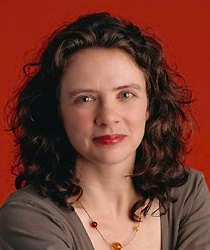
Abshire, Pamela
Fischell Institute Fellow
The Institute for Systems Research
Maryland Robotics Center
Brain and Behavior Institute
Robert E. Fischell Institute for Biomedical Devices
Pamela Abshire is a Professor in the Department of Electrical and Computer Engineering and the Institute for Systems Research at the University of Maryland, College Park. Her areas of specialty are in the fields of VLSI circuit design and bioengineering. Dr. Abshire's research focuses on better understanding the tradeoffs between performance and resources in natural and engineered systems.
Prior to her arrival at the University of Maryland in November, 2001, she was a graduate student in the Sensory Communications and Microsystems Lab in the Department of Electrical and Computer Engineering at The Johns Hopkins University. Her advisor was Andreas G. Andreou, and her dissertation topic was Sensory Information Processing Under Physical Constraints. Her research interests include information theory for physical systems, noise theory for electronic, photonic, and biological systems, analysis and design of sensory information processing systems, and algorithm, VLSI circuit, and microsystem design, especially for low power applications. Dr. Abshire was born in Fayetteville, North Carolina, and grew up in the Roanoke Valley in southwestern Virginia. She graduated as valedictorian of the class of 1988 from Salem High School in Salem, VA. From 1985 to 1988 she also attended the Roanoke Valley Governor's School for Science and Technology in Roanoke, VA. She received her B.S. degree in Physics with Honor in 1992 from the California Institute of Technology in Pasadena, CA. Between 1992 and 1995 she worked as a Research Engineer in the Bradycardia Research Department of Medtronic, Inc. in Minneapolis, MN. In 1995 she began her graduate education in the Department of Electrical and Computer Engineering at The Johns Hopkins University. She received her M.S. degree in Electrical and Computer Engineering in 1997 and completed her Ph.D. degree in Electrical and Computer Engineering in October 2001.
Honors and awards
- University of Maryland Distinguished Scholar-Teacher (2021)
- University of Maryland ADVANCE Professor (2020-2021)
- Fellow, Institute of Electrical and Electronics Engineers (2018)
- Clark School of Engineering E. Robert Kent Junior Faculty Teaching Award (2011)
- ISR Outstanding Systems Engineering Faculty Award, University of Maryland (2006)
- University of Maryland Invention of the Year Award, Physical Sciences category, “Cell Sensor Based Pathogen Detection” (2005)
- George Corcoran Award, ECE Department, University of Maryland (2004)
- Distinguished Service Award, IEEE Washington Section (2004)
- IEEE Women in Engineering Washington Area Affinity Group, Vice Chair (2004)
- NSF Faculty Early Career Development (CAREER) Award (2003)
- Co-Chair for Annual WIE Symposium (2003 and 2004)
- Associate Editor, IEEE Transactions on Circuits and Systems II
- Member of IEEE Circuits and Systems Society Technical Committees on Biomedical Circuits and Systems, Nanoelectronics and Gigascale Systems, Neural Systems and Applications, Sensory Systems
- She holds a patent for Cell-based sensing: biological transduction of chemical stimuli to electrical signals (nose-on-a-chip)
CMOS biosensors; adaptive integrated circuits (ICs) and IC sensors; hybrid microsystems incorporating CMOS, MEMS, optoelectronics, microfluidics, and biological components; low power mixed-signal ICs for a variety of applications, including cell-based sensing, high performance imaging, miniature robotics, spike sorting, adaptive data conversion, and closed loop control of MEMS and microfluidic systems
Her research awards include:
NSF CPS: Ant-Like Microrobots—Fast, Small, and Under Control
Hand-held disagnostic instrument
NSF: Cell-Based Olfactory Sensing for Biometrics
NSF: EXP-LA: Olfactory Receptor Cell-Based Detection of Explosives
AFOSR: Air Force Center of Excellence on Nature-Inspired Flight Technologies and Ideas (NIFTI)
BBI Seed Grant: Dance and EEG: Neural correlates of expressive movement
Selected reearch posters:
Olfactory Receptor Cell-Based Odorant Detection
Enabling microsystems for monitoring cells
Handheld Sample Preparation for Complex Samples
CMOS Biosensors for Cell-Based Sensing
Biolabs-on-a-Chip: Bioelectronic Interface to CelIs
Adaptive Log Domain Filters using Floating Gate Transistors
Ideal Observer Analysis of Flash Detection in Blowfly Photoreceptor
Biologically inspired vision systems in standard CMOS
MPower Announces Seed Grant Awards in Neuroscience and Aging
The four awards are joined by projects that employ neuroscience-related tools and themes.Alum Timir Datta-Chaudhuri develops VNS biosensor for mice
The invention could transform bioelectronic medicine research.Exploring the 'rules of life' of natural neuronal networks could lead to faster, more efficient computers
Nearly $3 million in NSF funding will enhance understanding of how the parts of a single neuron contribute to neuronal networks' overall learning and computation abilities.Behtash Babadi promoted to associate professor
Babadi has broad research interests in statistical and adaptive signal processing, neural signal processing, and systems neuroscience.Clark School faculty 'AIM-HI' to address major health challenges
The new UMB-UMCP program has announced its first grants for projects combining AI and medicine.Ghodssi gives distinguished lecture on devices for gastrointestinal health at EPFL in Switzerland
Trip also included visits to the Wyss Center and Imperial College London.Brain and Behavior Initiative (BBI) hosts Second Annual Seed Grant Symposium
The University’s Brain and Behavior Initiative (BBI) hosted its Second Annual Seed Grant Symposium on November 14, 2018 at Adele’s in the Stamp Student Union.BBI Holds 2017 Seed Grant Symposium
Over 115 people attend symposium featuring work and accomplishments of BBI Seed Grant Awardees for FY16/FY17.BBI FY17 Seed Grant Winners Announced
Nine projects selected for funding.- Fellow, 2018